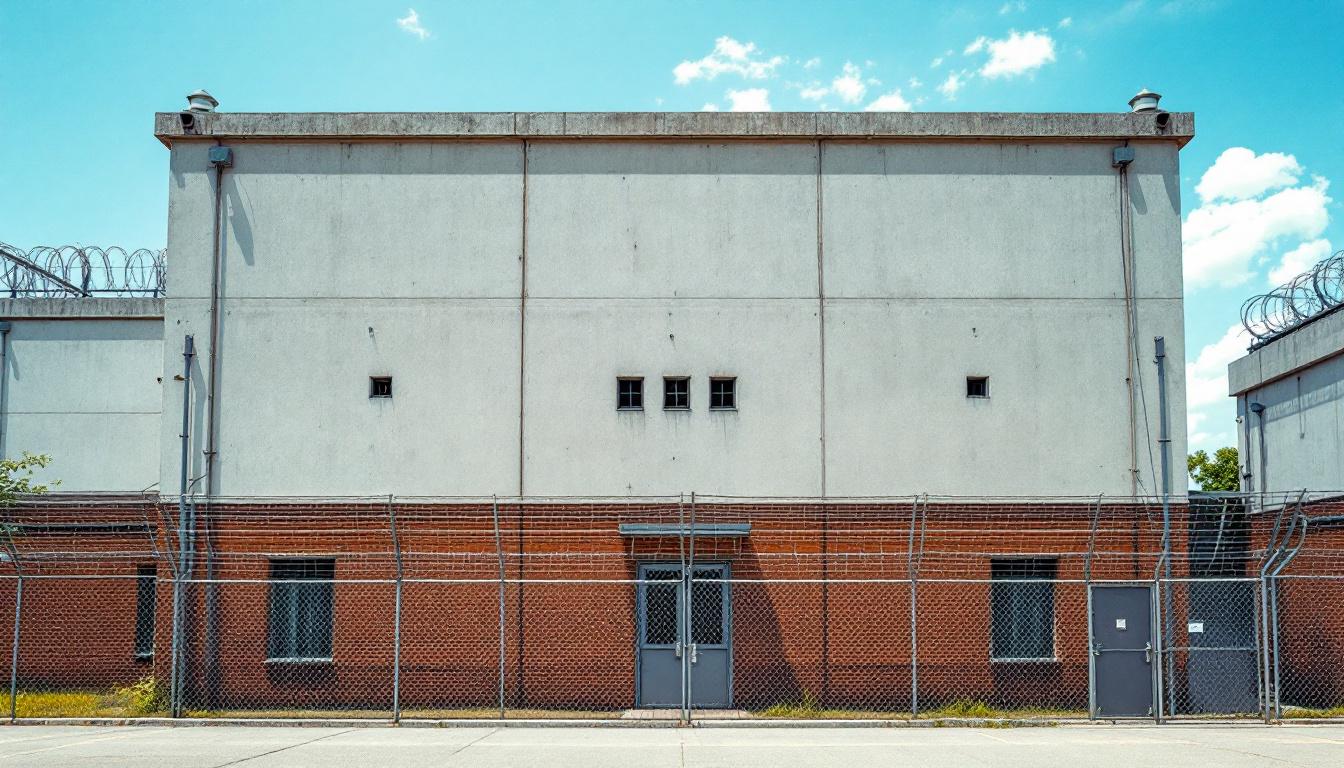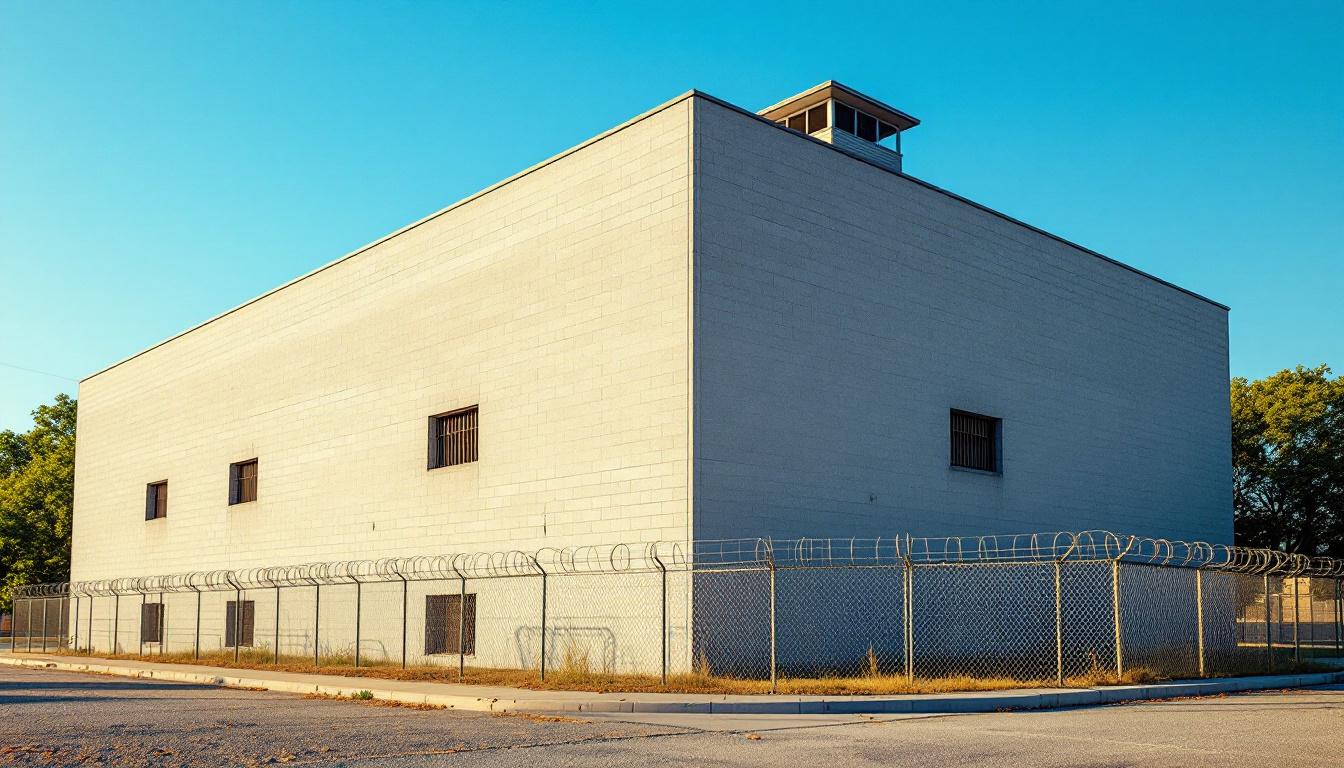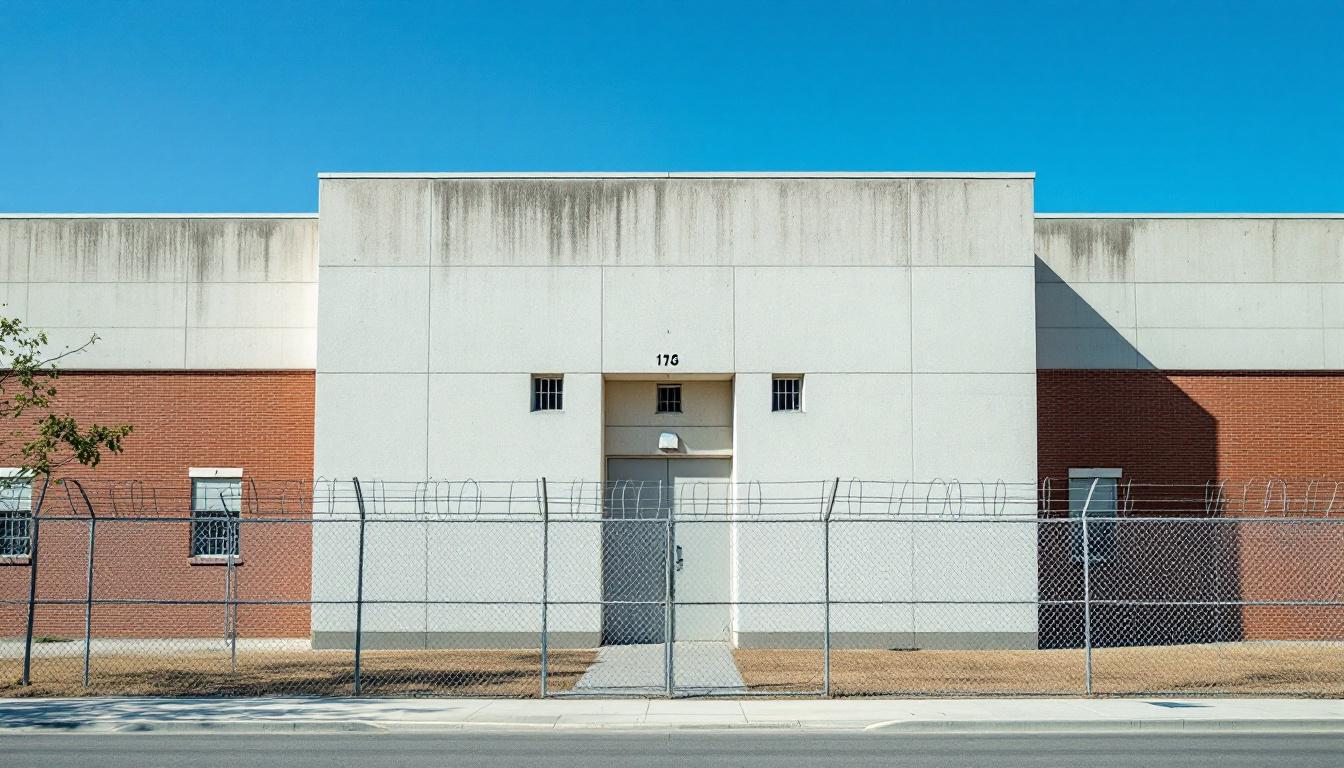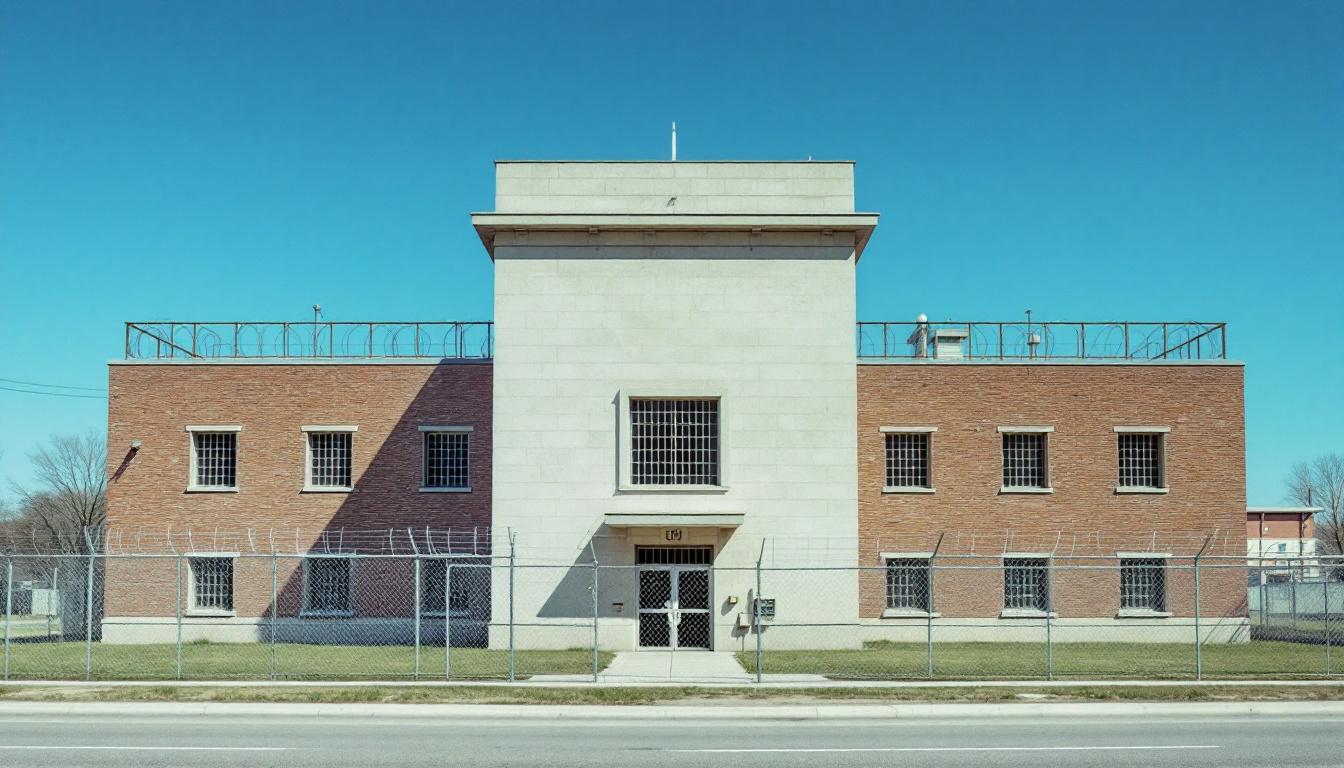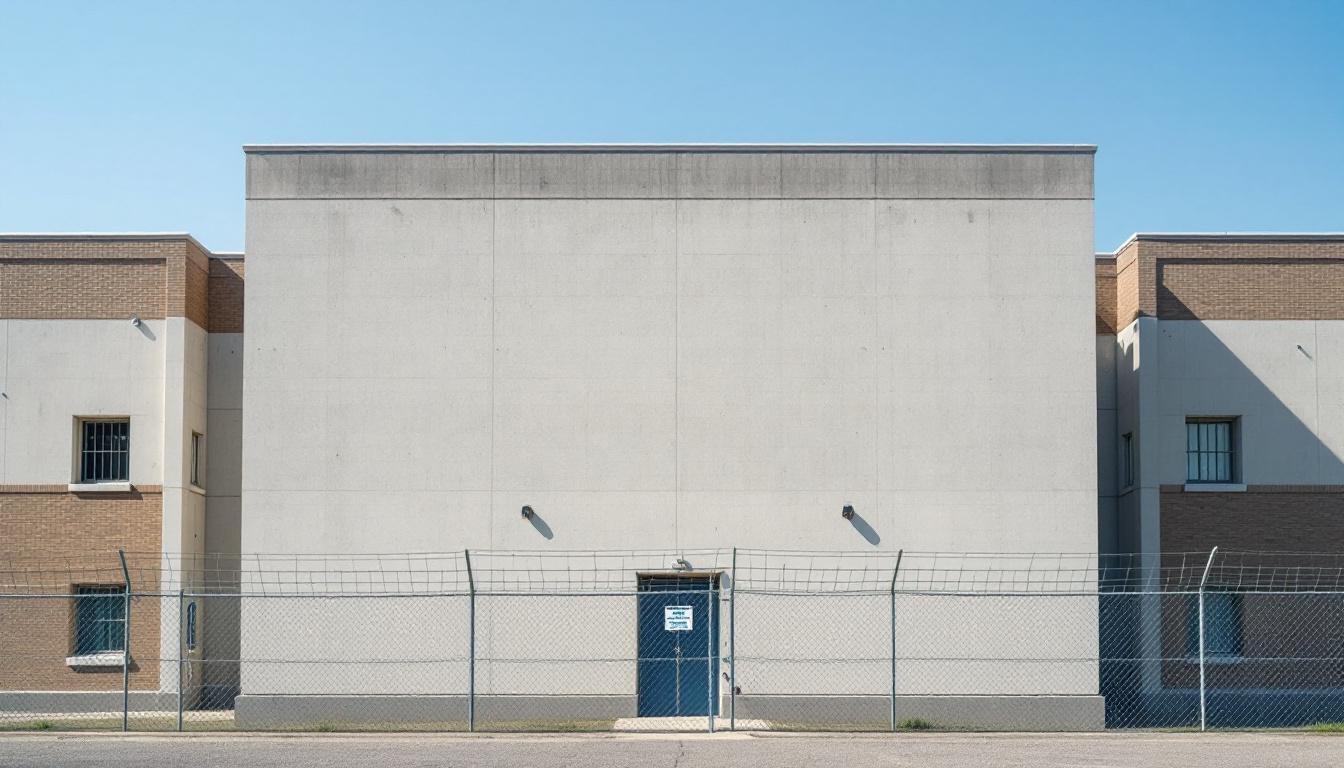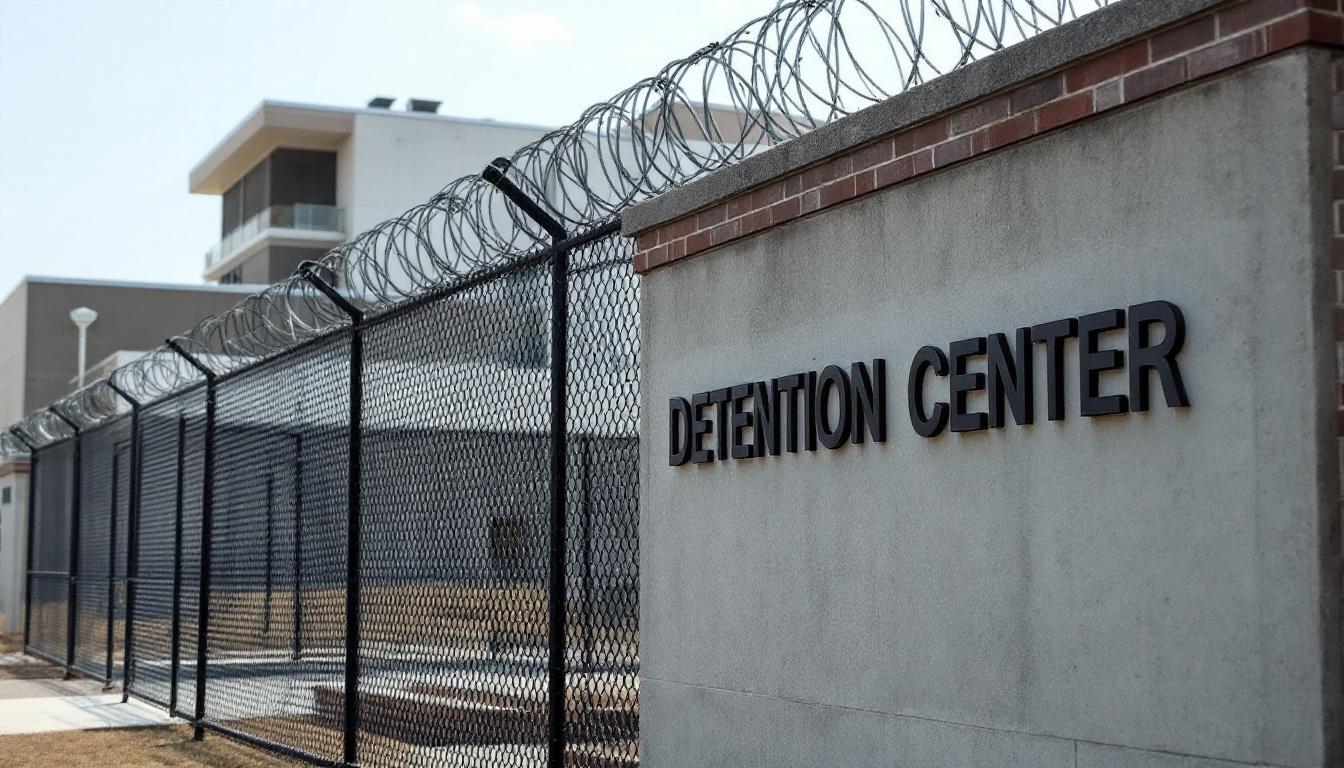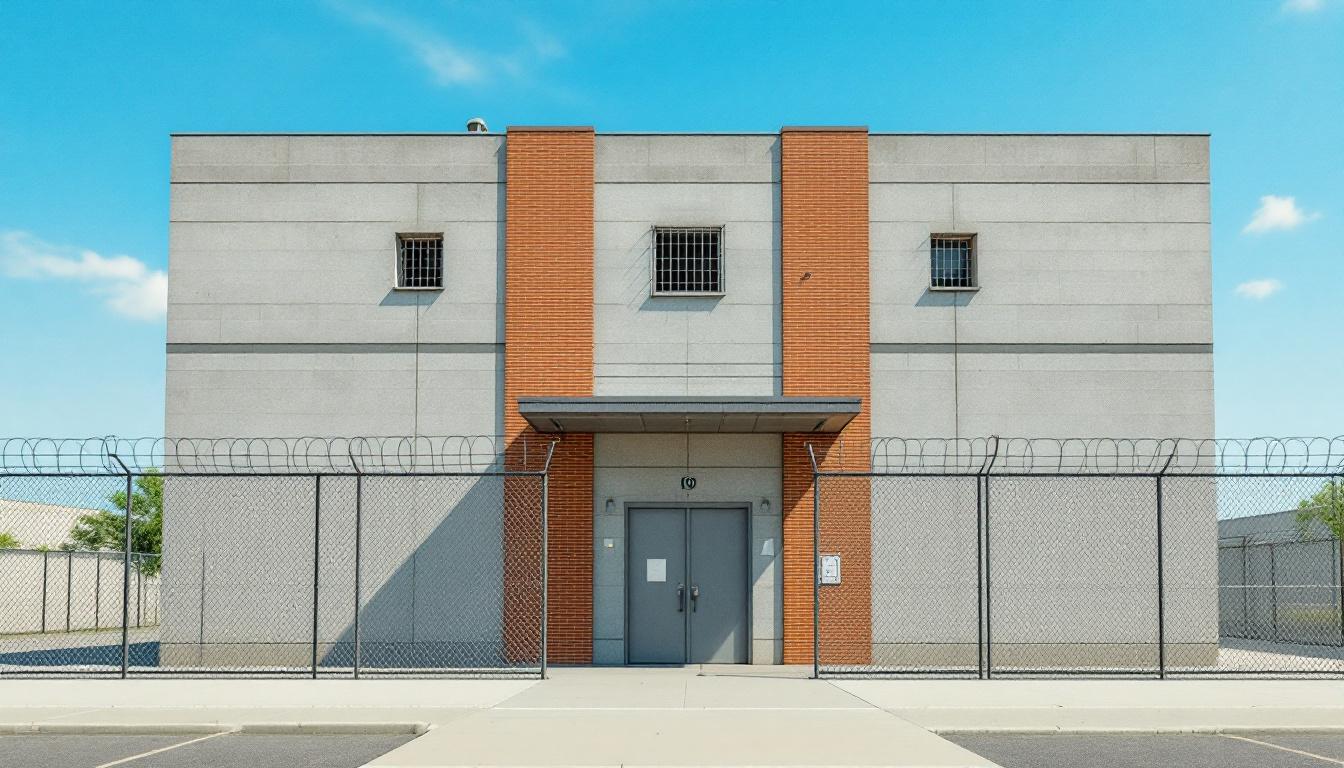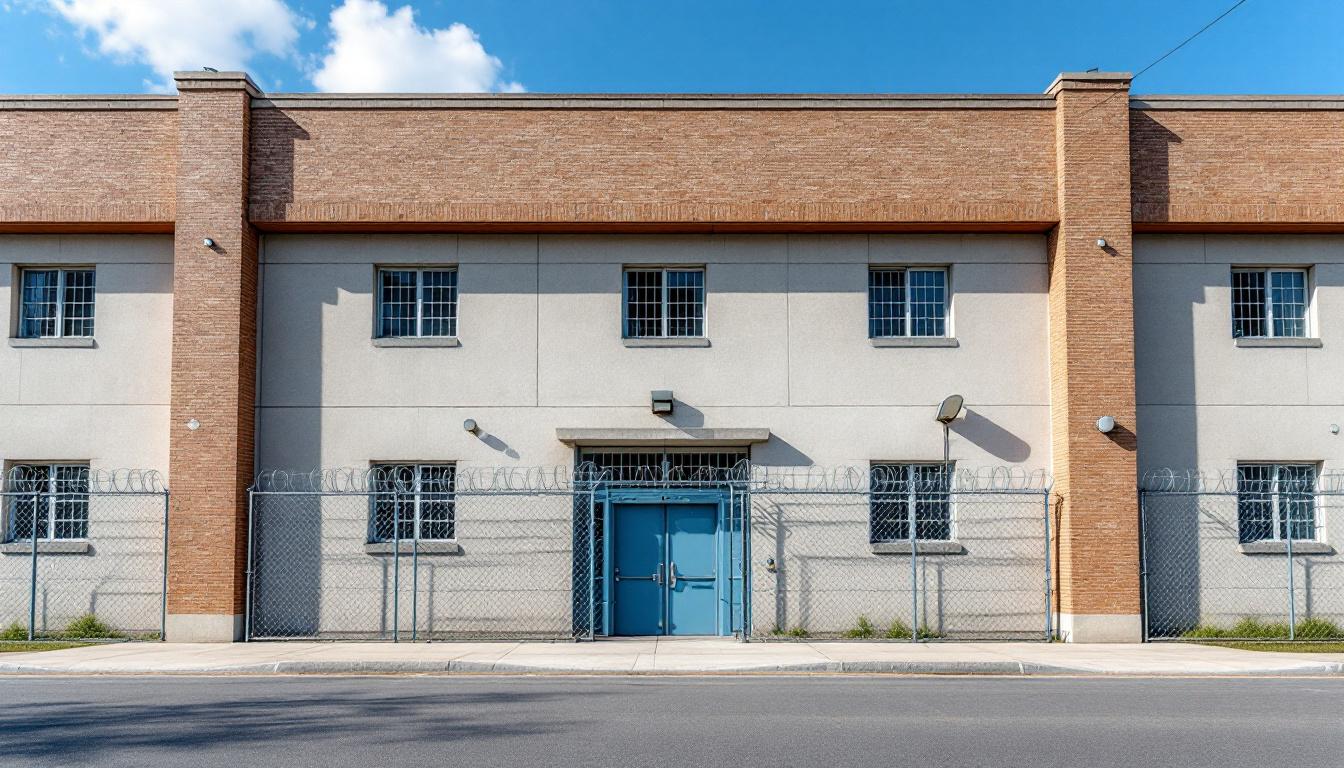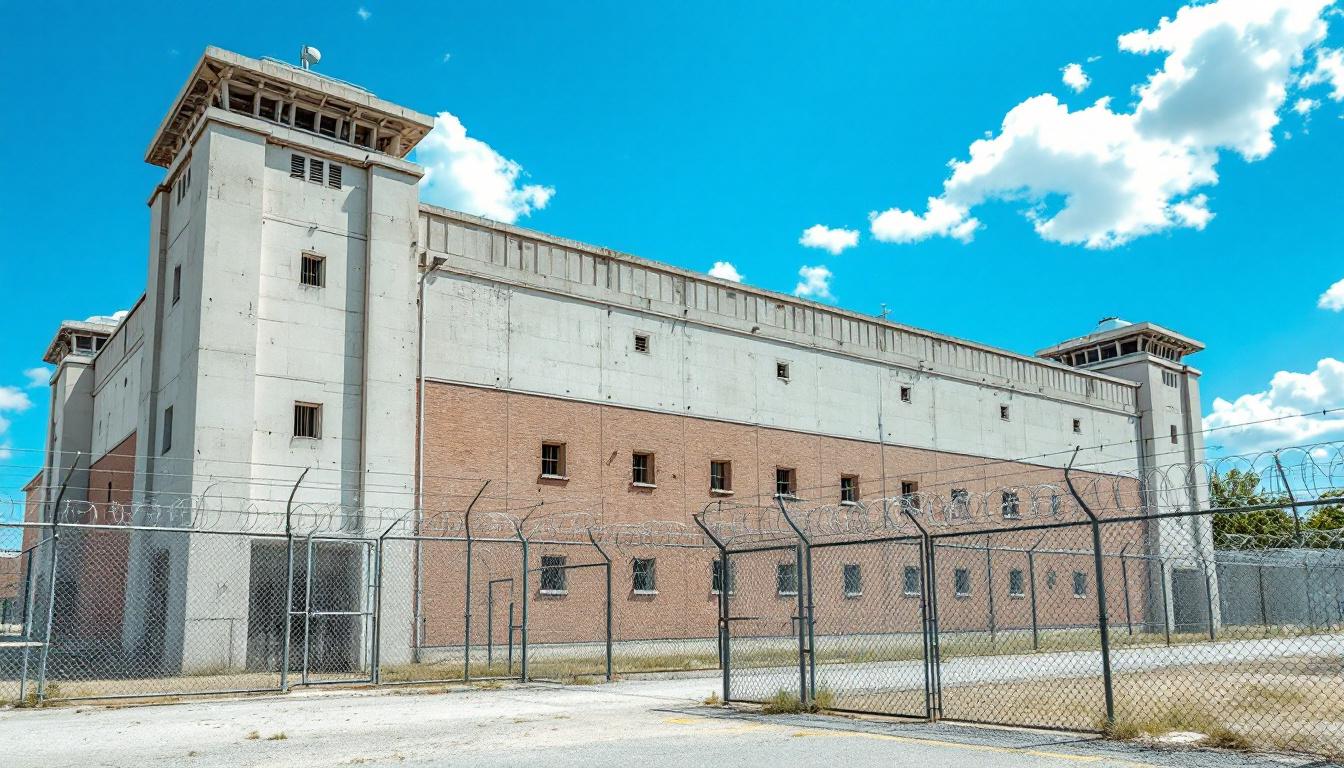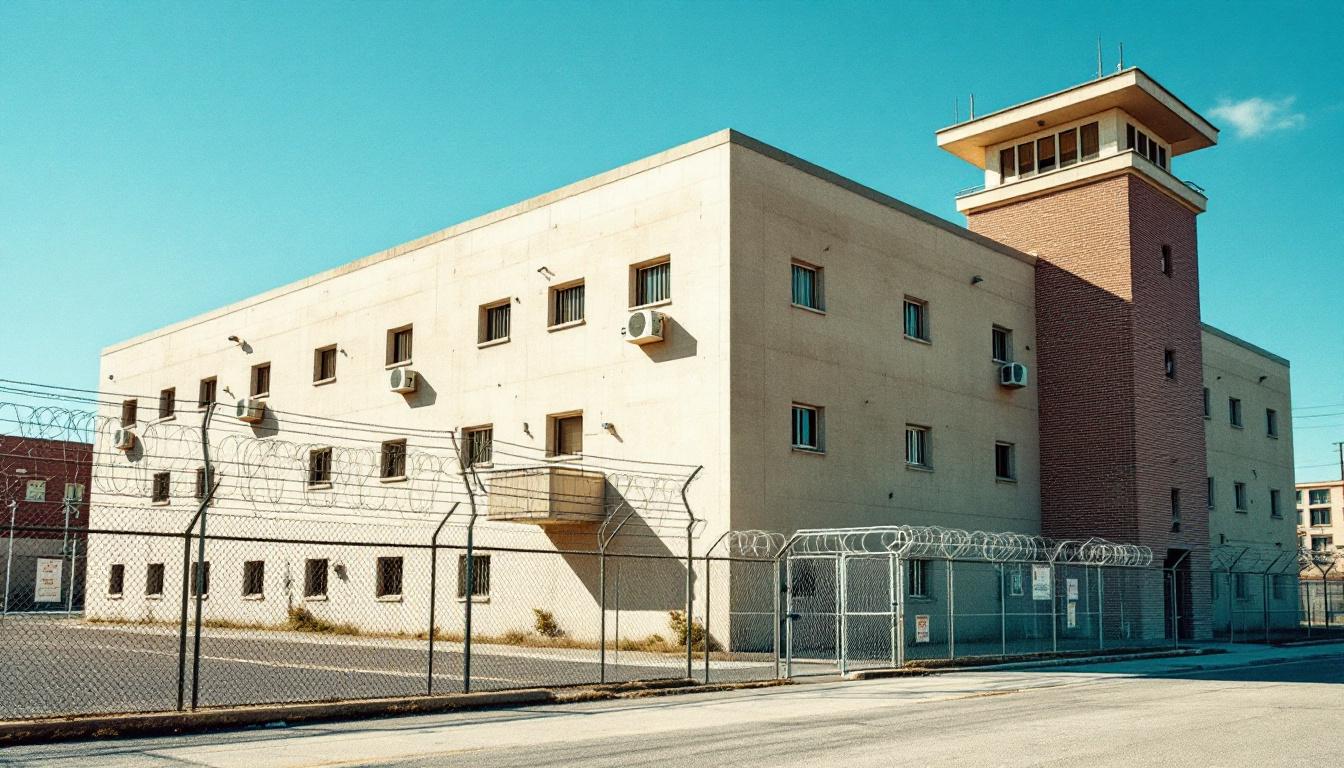
Quick Navigation
How to contact an inmate at Gaston County Jail
This comprehensive guide will walk you through how to connect with an inmate at Gaston County Jail. Follow the steps below to find an inmate and send letters and photos:
- Search for the inmate using our search tool below
- Create your account or log in to Penmate
- Write your message (up to 6,000 characters)
- Send instantly - inmates receive printed copies daily
Find an Inmate
Search for an inmate to start communicating today
Tip: You can search by first name, last name, or inmate ID number
To contact a person at Gaston County Jail start by searching for the person on the official facility website. Perform a search by following these steps:
- Step 1: Enter their first name and last name into the search form and click "Search"
- Step 2: Locate their inmate record
- Step 3: Write down their Inmate ID and any housing information provided
Important! Be sure to enter the person's full name. Nicknames should not be used.
How to Send Messages to Inmates

You can use your phone or computer to send emails, letters, and photos to an inmate. Messages are sent electronically to inmate tablets or kiosks at the facility. If you would like to send a message, start by searching for an inmate at Gaston County Jail.
Sending Photos and Postcards

A great way to send love and support to a loved one at Gaston County Jail is to send photos and postcards. It only takes a few minutes to send photos from your phone and it makes a huge difference. You can also mail postcards with words of support and inspiration, or design your own postcard for special moments like birthdays and holidays.
Important! Be sure not to send any explicit photos or they may not be approved by the facility. You can also use a photo printing app like Penmate to make sure your photos are printed at the correct size (4x6 or 3x5) and are mailed according to the rules and regulations of Gaston County Jail.
Frequently asked questions about Gaston County Jail
-
How long does it take to deliver a message?
If you're sending an email message your letter is usually delivered within 24-48 hours. For messages sent via mail you should expect delivery within 3-7 days. All messages will need be approved by Gaston County Jail.
-
How much does it cost to send a message to Gaston County Jail?
You can send a message free using your phone or mail a message via USPS for the price of a $0.60 stamp and envelope. You can also purchase credits or e-stamps from services starting at $1.99.
-
What services can I use to contact an inmate at Gaston County Jail?
Penmate
You can use Penmate to send letters and photos to an inmate from your phone. It's an easy way to stay in touch during your loved one's incarceration. Use the inmate locator to find an inmate's location and contact information, then you can send messages within a few minutes.
Securus messaging
Securus may be another option for communicating with an inmate at Gaston County Jail. You can create a friends and family account and purchase credits to send messages. All messages will be reviewed and must be approved by the facility.
JPay
Some county jails and state prisons may support sending messages with JPay. You must register an account with the system, find your loved one, and purchase stamps to send messages. For some locations you can also attach photos.
Smart Jail Mail
You may also check if Smart Jail Mail is available at Gaston County Jail. Smart Jail Mail is operated by Smart Communications and has contracted with some state and county jails. After purchasing credits, your messages and photos are sent to the facility, printed out, and then handed out to your loved one.
-
What is the mailing address of Gaston County Jail?
Mailing address:
Gaston County Jail
425 Dr M.L.K. Jr. Way
Gastonia, NC 28052
Phone: (704) 869-6800Business hours:
- Monday: Open 24 hours
- Tuesday: Open 24 hours
- Wednesday: Open 24 hours
- Thursday: Open 24 hours
- Friday: Open 24 hours
- Saturday: Open 24 hours
- Sunday: Open 24 hours
-
What are the visiting hours at Gaston County Jail?
Visiting hours at Gaston County Jail vary by housing unit and security level. Generally, visits are scheduled on weekends and holidays, with some facilities offering weekday visits. Contact the facility directly at (704) 869-6800 or check their website for the current visiting schedule. Visits typically last 30-60 minutes and must be scheduled in advance.
-
What items are prohibited when sending mail to Gaston County Jail?
Prohibited items typically include: cash, personal checks, stamps, stickers, glitter, glue, tape, staples, paperclips, polaroid photos, musical or blank greeting cards, hardcover books, magazines with staples, and any items containing metal or electronics. Only send letters on plain white paper with blue or black ink. Photos must be printed on regular photo paper (no Polaroids). Always check with Gaston County Jail for their specific mail policies.
-
How do I send money to an inmate at Gaston County Jail?
You can send money to an inmate at Gaston County Jail through several methods: 1) Online using JPay, Access Corrections, or the facility's approved vendor, 2) Money orders mailed directly to the facility with the inmate's name and ID number, 3) Kiosks located in the facility lobby, or 4) Over the phone using a credit or debit card. Fees vary by method, typically ranging from $2.95 to $11.95 per transaction.
-
Can I schedule a video visit with an inmate at Gaston County Jail?
Many facilities now offer video visitation as an alternative to in-person visits. At Gaston County Jail, video visits may be available through services like Penmate, Securus Video Connect, GTL, or ICSolutions. Video visits typically cost $10-20 for 20-30 minutes and must be scheduled in advance. You'll need a computer or smartphone with a camera and reliable internet connection. Contact the facility for their specific video visitation policies and approved vendors.
-
What identification do I need to visit an inmate at Gaston County Jail?
All visitors must present valid government-issued photo identification such as a driver's license, state ID, passport, or military ID. Minors must be accompanied by a parent or legal guardian who can provide the minor's birth certificate. Some facilities require visitors to be on the inmate's approved visitation list, which may require a background check. Contact Gaston County Jail for specific ID requirements and visitor approval procedures.
-
How can I find out an inmate's release date?
To find an inmate's release date at Gaston County Jail, you can: 1) Use the online inmate search tool if available, 2) Call the facility's records department, 3) Contact the inmate's case manager or counselor, or 4) Have the inmate provide this information during a call or visit. For privacy reasons, some facilities only release this information to immediate family members.
Facility Overview
Contact Information
Gaston County Jail425 Dr M.L.K. Jr. Way
Gastonia, NC 28052
Phone: (704) 869-6800
Official Website

About Gaston County Jail
Community safety in Phoenix, North Carolina, receives dedicated support through the comprehensive operations of Gaston County Jail, NC, where collaborative partnerships between law enforcement, judicial systems, and community organizations work together to address public safety needs. This NC correctional facility operates within the broader framework of North Carolina's county jail system, serving as a vital component in maintaining regional security while emphasizing rehabilitation and reintegration opportunities for those in custody. The facility's strategic location in Phoenix enables efficient coordination with local courts, law enforcement agencies, and community service providers throughout Gaston County.
The collaborative approach at this county jail typically encompasses various inmate services designed to address both immediate custody requirements and longer-term rehabilitation goals. Programs may include educational opportunities, substance abuse counseling, vocational training, and mental health support services, all developed through partnerships with local organizations and state agencies. These initiatives generally focus on providing inmates with practical skills and resources that support successful community reintegration upon release, contributing to reduced recidivism rates and enhanced public safety outcomes.
Through its commitment to service-oriented operations, the facility maintains professional standards that balance security requirements with rehabilitation opportunities, ensuring that both community safety and individual development remain central priorities. The jail's role extends beyond simple detention, encompassing comprehensive case management, court coordination, and transition planning services that support the broader criminal justice system's effectiveness in Gaston County and the surrounding Phoenix area.
Programs & Services
Personal growth and skill development form the cornerstone of rehabilitation services that may be available to inmates at Gaston County Jail. The facility typically focuses on providing opportunities that help individuals build practical abilities and address underlying challenges that contribute to criminal behavior. These services often emphasize preparing inmates for successful reintegration into their communities through structured learning and support.
Educational services may include basic literacy instruction, GED preparation, and civic education that helps inmates understand their rights and responsibilities as citizens. Also, vocational training opportunities often focus on practical skills that translate directly to employment opportunities upon release. Carpentry training may provide hands-on experience in construction techniques and tool usage, while electrical work instruction typically covers fundamental wiring and safety procedures. These skill-based services aim to give inmates marketable abilities that can support stable employment.
Life coaching services may offer individualized guidance to help inmates develop goal-setting abilities and problem-solving skills for daily challenges. Also, substance abuse programs typically address addiction issues through counseling and education about recovery strategies. These therapeutic services often include group sessions and individual counseling designed to help inmates understand the factors that led to their incarceration. The combination of practical training and personal development support creates a framework that may help inmates build the foundation for positive life changes.
Daily Life & Visitation

Behind concrete walls and secured doors, the housing environment at Gaston County Jail shapes every aspect of an inmate's daily experience. At present, inmates actively navigate a structured routine that typically begins with early morning counts and meal service. The facility generally operates on a regimented schedule that provides predictable patterns for wake-up calls, meals, and lockdown periods throughout each day.
Living accommodations usually consist of shared cells or dormitory-style housing units, where inmates adapt to limited personal space and communal living arrangements. Each housing area typically includes basic furnishings and shared facilities, with inmates learning to manage their few personal belongings within strict property guidelines. The commissary system generally allows inmates to purchase approved items to supplement basic necessities, though access may vary based on housing classification and behavior records.
Also available are various programming opportunities that provide structure and skill development during incarceration. Work assignments within the facility often include kitchen duties, cleaning responsibilities, and maintenance tasks that help inmates maintain productive routines. However, recreation time and exercise periods typically occur in designated areas under supervision. Family connections remain vital through scheduled visitation periods and telephone privileges, allowing inmates to maintain important relationships while serving their time. These communication options generally help inmates cope with the challenges of institutional life and prepare for eventual reintegration into the community.
Ready to Connect?
Start communicating with your loved one today
Search for an Inmate
